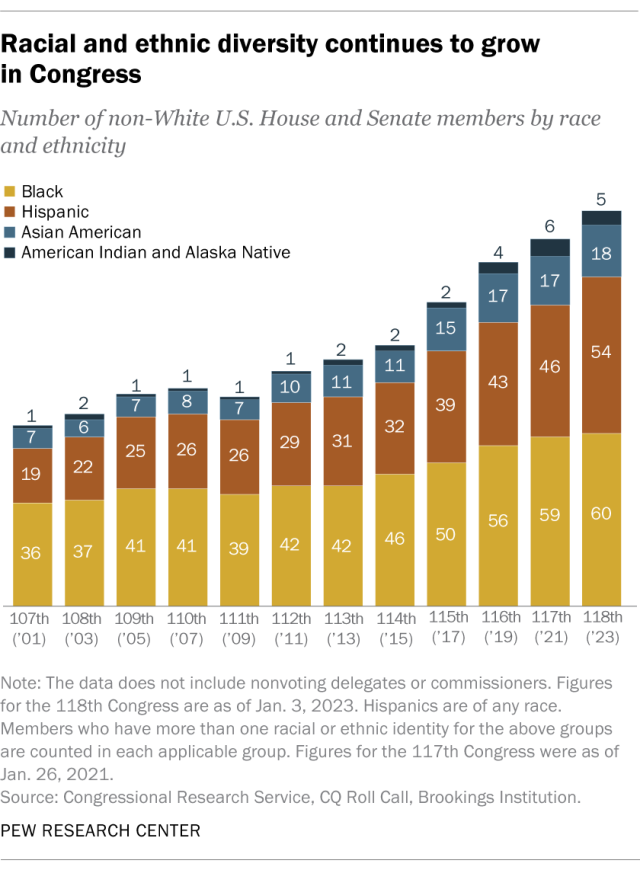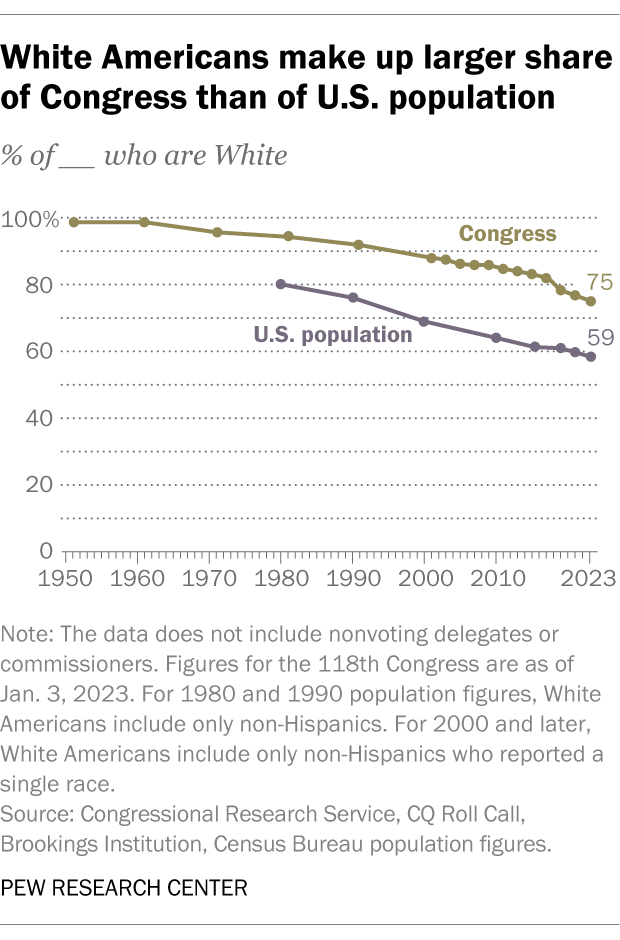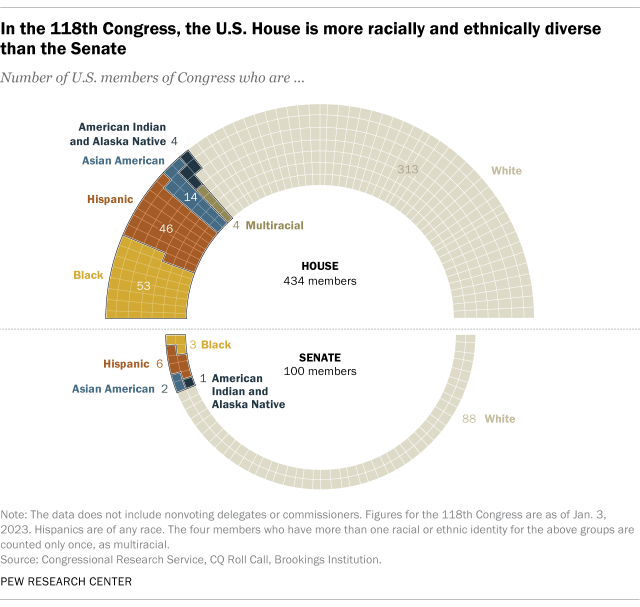Diverse Congress
Katherine Schaeffer at Pew:
A quarter of voting members of the U.S. Congress identify their race or ethnicity as something other than non-Hispanic White, making the 118th Congress the most racially and ethnically diverse to date. This continues a long-running trend toward more racial and ethnic diversity on Capitol Hill: This is the seventh Congress to break the record set by the one before it.
Overall, 133 senators and representatives today identify as Black, Hispanic, Asian American, American Indian or Alaska Native, according to a Pew Research Center analysis of data from the Congressional Research Service. This number has nearly doubled in the two decades since the 108th Congress of 2003-05, which had 67 minority members.
Our analysis of the 118th Congress reflects the 534 voting members of Congress as of Jan. 3, 2023. Portuguese American members are not included in the Hispanic count.
The vast majority (80%) of racial and ethnic minority members in the new Congress are Democrats, while 20% are Republicans. This split is similar to the previous Congress, when 83% of non-White lawmakers were Democrats and 17% were Republicans.





